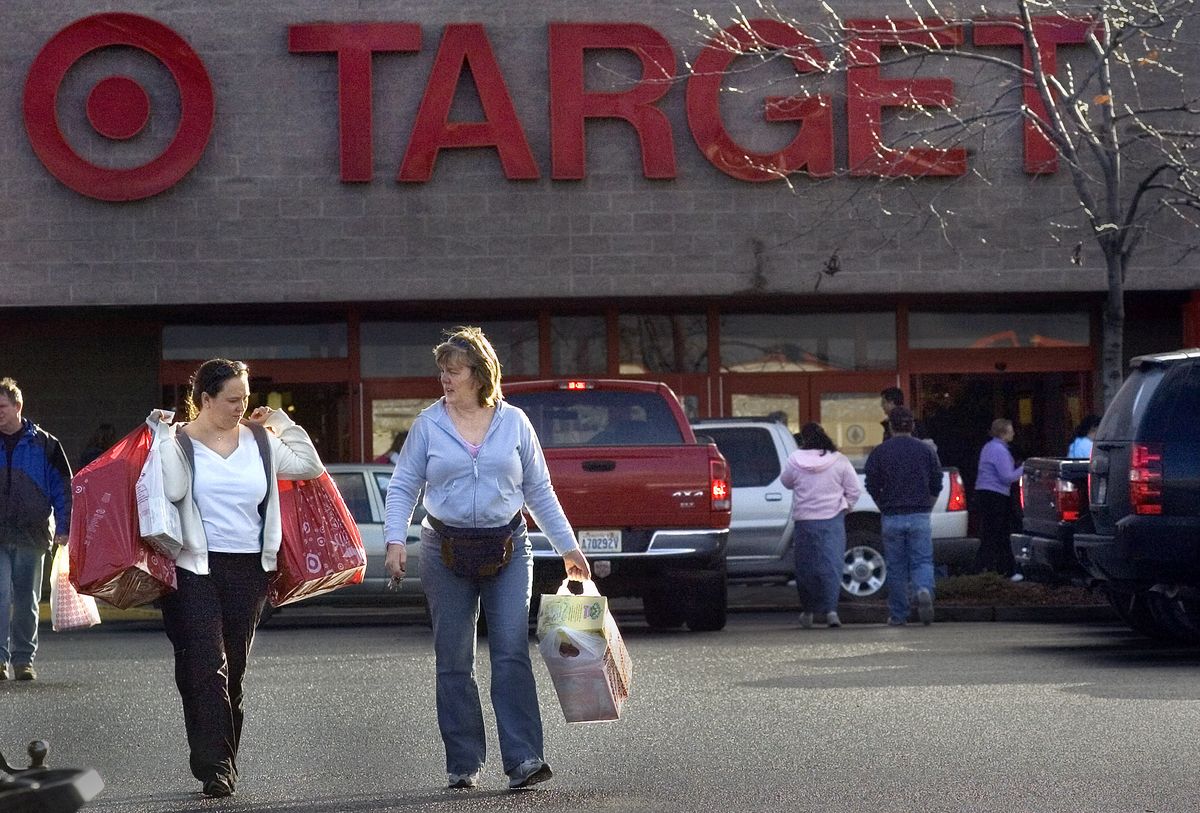Big issues in big boxes
Economics trump managed growth
A Target will be part of a new development on Spokane’s South Hill. (FILE / The Spokesman-Review)
If Spokane’s comprehensive plan is so vulnerable to pressure from big-box builders that it can be modified overnight, why do we even bother with one?
Why have the Plan Commission make the effort to study a proposal and make a recommendation if the City Council simply ignores the recommendation?
It seems to me a colossal waste of time and resources if elected officials don’t ultimately have the guts to hold the line and demonstrate authentic commitment to growth management. It seems as if this town is so perennially broke and desperate, officials have every conceivable rationale at hand needed to excuse their kowtowing to builders and developers.
Look at the latest capitulation, only the most recent in a long litany. After months of contentious wrangling, the big-box guys got their way on the South Hill. In spite of years of neighborhood objections, there will be major commercial development on about 45 acres at South Regal and the Palouse Highway, including Home Depot, Target and other staples of modern American retailing.
It almost always works this way in such disputes – it’s a war of attrition. The guy with the most resources and time to throw at the deal wins in the end.
The developers, and the local representatives with community cred that they hired to promote their interests, eventually succeeded in wearing neighborhood opposition to a nub. Widespread opposition dwindled to a tired little handful, wearily forced into a compromise.
After all, these neighborhood advocates are unpaid soldiers, while developer interests are professionals on the payroll. Eventually, something’s gotta give, and it’s usually the volunteers.
While city officials and developers were full of predictably happy horse-puckey about the negotiations and the deal that was struck over big-box stores on the South Hill, neighborhood advocates were less sanguine. Many in the Southgate neighborhood say developers got most of what they wanted without compromising on key elements.
Developers got significant increases on the size of the stores, all along a major sticking point. And they didn’t have to compromise on options to decrease traffic congestion on Regal. Traffic congestion is a huge, persistent concern that is still not being addressed to the satisfaction of the greater South Hill community. Why were their feet not held to the fire on these important points?
The Southgate neighborhood was thrown a few bones for doggedly appearing at the table. The developer agreed to construct bike and pedestrian routes, and participate in a storm water collection system. Wow. Seems like these elements would be baseline – sort of a minimum standard, not hard-won concessions.
Councilman Richard Rush, the lone opponent of the proposals, lamented the lost opportunity represented by the council’s vote. This echoes the city’s Plan Commission, which months ago rejected the developer proposals because they lacked “deeper neighborhood planning.”
The developers and their minions have probably been discreetly celebrating all week, careful not to gloat too much about their conquest over the neighborhood. Someone at Twigs might spy them raising a glass, and that would be unseemly.
It would also be not particularly strategic. That’s because before anything is built, developers and city officials must agree to more detailed concepts based on the agreements approved by the council. The devil will be in the details, and there may yet be some life to the opposition.
As always, the holy grail that was pursued here with relentless abandon is tax revenue. It is the stock rationale for succumbing to pressure from developers.
Councilman Al French acknowledged as much, saying the big boxes will contribute tax revenue to the city. Of course they will, but does that mean the council has to bend over for every potential source of tax revenue that comes courting?
If the glitter of tax revenue is the trump card that enables our elected officials to throw out the city’s long-term growth plan, why do they even bother to pay lip service to it? Why lead everyone down the primrose path, if the intention all along is to negotiate away some of the basic principles of growth management and comprehensive planning?
Being honest from the get-go would save everyone a lot of time and resources. City officials should simply make it clear that visionary community planning is a luxury that is contingent on having a rosy financial outlook.
If tax money is flowing in abundance, bills are being paid, budgets being met – then, and only then, will zoning regulations, comprehensive planning, neighborhood values and growth management be respected.
If a stable financial outlook continues to elude us, as it seemingly has for so long, the tools and principles of managed growth for our community will continue to topple to development pressure like so many bowling pins.

